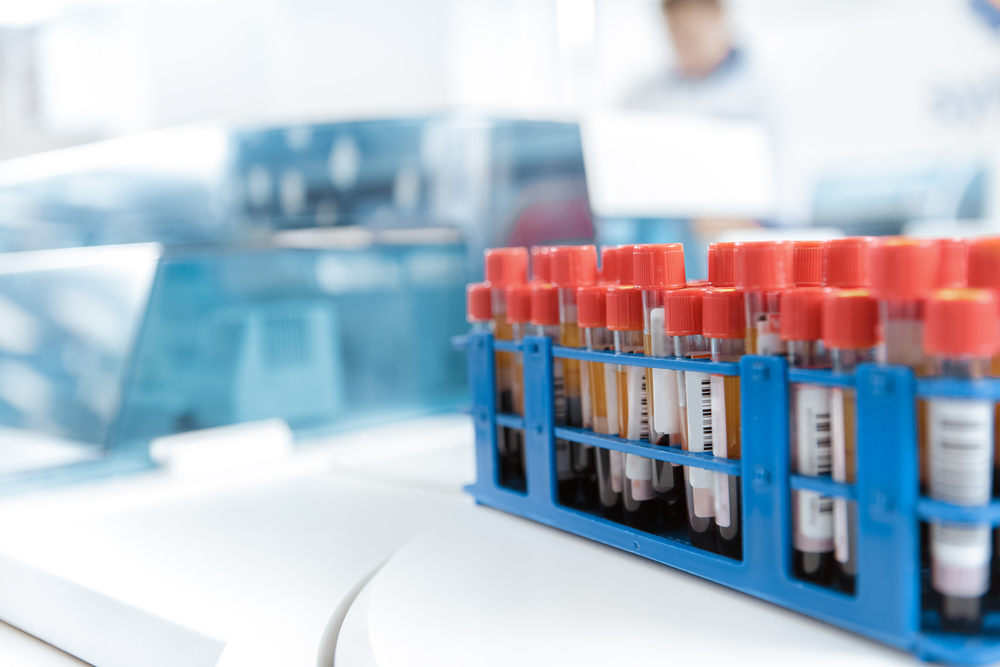Everything You Need To Know About The Pulmonary Function Test (PFT)
In the realm of respiratory health assessment, the Pulmonary Function Test (PFT) stands as a cornerstone diagnostic tool. From detecting lung diseases to evaluating lung function, this test plays a pivotal role in clinical practice. In this comprehensive guide, we'll delve into every aspect of Pulmonary Function Testing, from its definition to preparation and beyond.
What is a Pulmonary Function Test (PFT)?
At its core, a Pulmonary Function Test (PFT) is a series of non-invasive diagnostic procedures aimed at assessing how well your lungs are functioning. These tests provide crucial insights into lung capacity, efficiency of oxygen uptake, and overall respiratory health. By measuring various parameters such as lung volume, airflow, and gas exchange, PFTs help healthcare professionals diagnose respiratory conditions and monitor disease progression.
PFTs involve a range of tests, each targeting specific aspects of lung function. Let's explore the different types in detail.
What are the Types of Pulmonary Function Tests (PFTs)?
Types of Pulmonary Function Tests (PFTs) are:
Alpha 1 Antitrypsin (AAT)
While primarily associated with lung disease, low levels of alpha-1 antitrypsin can also indicate liver disease, , particularly cirrhosis.
Aspergillus Ab - IgG - Serum
Although primarily used to detect Aspergillus infection, elevated levels of immunoglobulin G (IgG) antibodies can also indicate liver dysfunction in some cases.
Adenosine Deaminase (ADA) - CSF
Elevated levels of adenosine deaminase in cerebrospinal fluid (CSF) can suggest liver disease, particularly hepatitis.
Porphobilinogen
This test is used to diagnose certain liver disorders, such as porphyria, which is a group of disorders caused by abnormalities in heme production. Elevated levels of porphobilinogen can indicate liver dysfunction.
CMV IgG - Cytomegalovirus IgG
While primarily used to detect cytomegalovirus infection, abnormal liver function can lead to reactivation of latent CMV, so this test indirectly reflects liver health in some cases.
Why Perform a Pulmonary Function Test (PFT)?
Pulmonary Function Tests serve a multitude of purposes in clinical practice. Here's why healthcare providers may recommend a PFT:
Diagnosing Respiratory Conditions
PFTs are instrumental in diagnosing a wide range of respiratory disorders, including asthma, chronic obstructive pulmonary disease (COPD), pulmonary fibrosis, and bronchitis. By assessing lung function , these tests aid in accurate diagnosis and formulation of treatment plans.
Monitoring Disease Progression
For individuals with chronic respiratory conditions, regular PFTs are essential for monitoring disease progression and evaluating the effectiveness of treatment interventions. Changes in lung function over time can guide adjustments to medication dosages or therapeutic approaches.
Assessing Surgical Risk
Before undergoing certain surgical procedures, particularly those involving the chest or lungs, patients may undergo PFTs to assess their respiratory health and determine their risk of complications during surgery and anesthesia.
Evaluating Fitness for Certain Activities
PFTs may be required for individuals applying for certain jobs or activities that involve exposure to respiratory hazards, such as firefighting or scuba diving. These tests ensure that individuals have adequate lung function to safely perform their duties.
What are the Risks Associated with a Pulmonary Function Test (PFT)?
While Pulmonary Function Tests are generally safe and well-tolerated, there are minimal risks associated with certain aspects of the testing process. It's essential to be aware of these potential pulmonary function test risks:
Discomfort or Shortness of Breath
Some individuals may experience temporary discomfort or shortness of breath during certain parts of the test, such as during forced exhalation in spirometry or during exercise stress testing. However, these sensations typically subside quickly once the test is complete.
Bronchospasm
In individuals with underlying respiratory conditions such as asthma, bronchial provocation tests may trigger bronchospasm (constriction of the airways), leading to coughing, wheezing, or shortness of breath. Healthcare providers closely monitor patients during these tests and have medications on hand to alleviate symptoms if they occur.
Rare Complications
While rare, complications such as pneumothorax (collapsed lung) or arrhythmias (irregular heartbeats) may occur during certain types of PFTs, particularly if the patient has pre-existing cardiac or pulmonary conditions. However, these complications are exceedingly rare and typically occur in high-risk individuals.
How to Prepare for Pulmonary Function Tests (PFTs)?
Proper preparation is essential to ensure accurate and reliable test results. Here's what you need to know about preparing for Pulmonary Function Tests:
Follow Instructions from Your Healthcare Provider
Your healthcare provider will provide specific instructions on how to prepare for your PFT based on the type of test being performed. It's crucial to follow these instructions carefully to ensure the accuracy of the results.
Avoid Certain Medications
Some medications, such as bronchodilators or inhalers, can affect the results of PFTs. Your healthcare provider may instruct you to temporarily discontinue these medications before the test. However, it's essential to consult your healthcare provider before making any changes to your medication regimen.
Avoid Smoking and Heavy Meals
Smoking can impair lung function, so it's advisable to avoid smoking for several hours before the test. Similarly, consuming heavy meals immediately before the test may affect your ability to breathe comfortably during the procedure.
Wear Comfortable Clothing
Wear loose-fitting, comfortable clothing on the day of the test to allow for unrestricted movement of the chest and abdomen during breathing maneuvers.
Where to Get Pulmonary Function Tests (PFTs) Done?
When it comes to prioritizing your respiratory health, choosing the right facility for Pulmonary Function Tests (PFTs) is paramount. Among the myriad of options available, Asto Labs emerges as a beacon of convenience and quality. Here's why Asto Labs should be your top choice for PFTs:
Asto Labs: Your Trusted Partner in Respiratory Health
Free Home Collection
Asto Labs understands the importance of convenience, especially when it comes to healthcare services. That's why we offer free home collection services for Pulmonary Function Tests. Say goodbye to the hassle of commuting to a testing facility – our trained phlebotomists will come directly to your doorstep, ensuring a seamless and stress-free testing experience.
NABL Accredited Labs
Quality assurance is at the core of everything we do at Asto Labs. Our laboratories are accredited by the National Accreditation Board for Testing and Calibration Laboratories (NABL), ensuring that our testing processes meet the highest standards of accuracy and reliability. With Asto Labs, you can trust that your PFT results are in capable hands.
Fast & Accurate Reports
We understand the urgency of timely results, especially when it comes to healthcare diagnostics. At Asto Labs, we prioritize efficiency without compromising on accuracy. Our state-of-the-art testing equipment and experienced technicians ensure that you receive fast and accurate reports, allowing for prompt diagnosis and intervention if needed.
Don't compromise when it comes to your respiratory health. Choose Asto Labs for unparalleled convenience, quality, and expertise in Pulmonary Function Testing. With free home collection, NABL accredited labs, and fast, accurate reports, Asto Labs is your trusted partner in respiratory health. Schedule your PFT with Asto Labs today and take proactive steps towards preserving your lung health.






